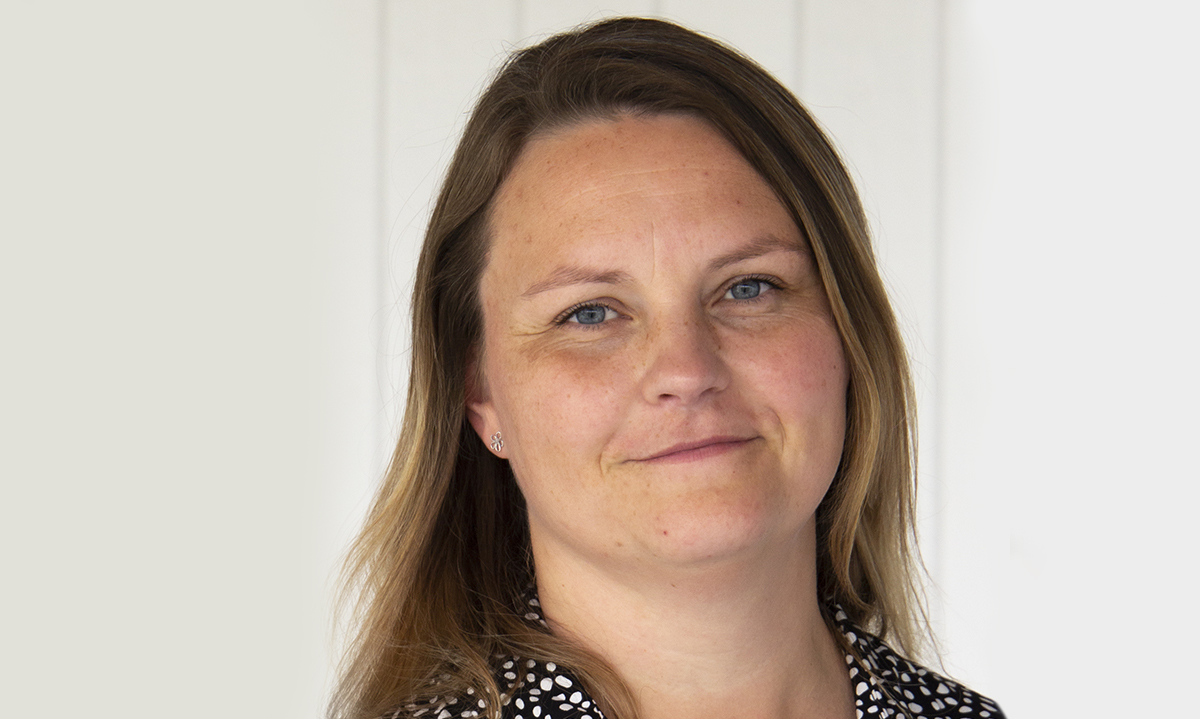The world’s plants are under pressure from climate change, pesticides used in agriculture and other threats.
Globally, researchers are striving to be able to predict the future for the world’s plants, and this requires advanced statistical methods to gain information from the large data sets.
However, the statistical tools available to researchers are increasingly obsolete and require updating. To contribute to this, the Novo Nordisk Foundation has awarded Signe Marie Jensen, Assistant Professor, Department of Plant and Environmental Sciences, University of Copenhagen DKK 9.2 million under its ambitious Data Science Investigator Programme.
The grant is for 5 years and gives Signe Marie Jensen sufficient time and resources to develop the statistical tools of the future within this field.
“Researchers all over the world use the current statistical tools, but they urgently need to be developed so that they can be used on data over time and to study several responses in plants simultaneously. The overall aim is to enable researchers to use these statistical tools to better assess how the current environmental burden and climate change affect nature,” Signe Marie Jensen explains.
New statistical methods required
In her research, Signe Marie Jensen strives to determine how to use statistics to optimally calculate how various stressors affect plants. These stressors include climate stress from drought or heat and chemical stress from pesticides that are spread on agricultural fields or in private gardens but still end up everywhere in the environment.
The stress factors have the unfortunate effect of reducing the health of plants, and this can be important for biodiversity and the future food production.
The statistical method that Signe Marie Jensen will further develop is called the benchmark dose method, and is especially used in human toxicology. This method needs to be developed to meet the needs of research on environmental protection.
“Improving statistical tools will enable us to produce results much faster. In addition, we will develop software that can make data processing more efficient,” says Signe Marie Jensen, who will use part if the grant to hire two PhD students to help with the development.
A career springboard
Signe Marie Jensen says that the grant from the Foundation is really important for her work. It recognises the research she has already carried out but also provides a career springboard.
“The first large grant is always special, because you have to prove that you can carry out and finish major projects. However, this also improves the chance of getting large grants later in your career. In addition, 5 years is a really long time with peace of mind in academia. This grant will really enable me to work in depth on the project without having to constantly think about applying for new funding for my research every 6 months,” Signe Marie Jensen explains.
She also notes that part of the grant is earmarked for teaching, and this will give her the opportunity to launch a data science course for plant and environmental science students.
“This is pretty amazing, because data science is quite often given low priority in plant science, even though it is essential for analysing results,” adds Signe Marie Jensen.
Grants for seven researchers
The grant to Signe Marie Jensen is one of seven new grants totalling DKK 62 million recently awarded by the Foundation through its Data Science Investigator Programme.
The grants are divided into the categories of Emerging Investigator, Ascending Investigator and Distinguished Investigator. The grants target research leaders at different career stages to support attractive career paths for talented specialists within data science.
The seven Data Science Investigator Programme grant recipients in 2021
Emerging Investigator
- Shilpa Garg, Assistant Professor, Department of Biology, University of Copenhagen: Efficient, High-resolution Approaches for Integrative Sequencing Analysis of Complex Diseases – DKK 9,960,709
- Signe Marie Jensen, Assistant Professor, Department of Plant and Environmental Sciences, University of Copenhagen: Enhancing Statistical Methodology for Toxicophenomics: High-throughput and High-dimensional Data for Ecotoxicological Risk Assessment – DKK 9,225,108
- Jesper Madsen, Assistant Professor, Department of Mathematics and Computer Science, University of Southern Denmark, Odense: Islet Cartography – Multilayered Mapping of Islets of Langerhans in Health and Disease – DKK 8,790,602
- Niklas Pfister, Assistant Professor, Department of Mathematical Sciences, University of Copenhagen: CausalBiome: Developing a Unified Statistical Framework for Analysing Microbiome Data – DKK 9,812,25
Ascending Investigator
- Søren Besenbacher, Associate Professor, Department of Clinical Medicine, Aarhus University: Novel Methods to Model Mutational Processes in Germline and Cancer – DKK 6,705,000
- Morten Arendt Rasmussen, Associate Professor, Department of Food Science, University of Copenhagen: First Principal Models, Neural Networks and Functional Graphical Models for Defining Metabolic Capacity as a Tool for Personalized Nutrition (FOODTOP) – DKK 9,267,806
Distinguished Investigator
- Rasmus Pagh, Professor, Department of Computer Science, University of Copenhagen: Providentia: Privacy-driven Trust in Algorithms – DKK 8,410,068
This is the second time the Foundation has awarded grants through the Data Science Investigator Programme, which is part of the Foundation’s Data Science Initiative.
The Initiative was launched in 2019 and aims to broadly boost capacity within data science, including supporting the implementation of ambitious research programmes, establishing new national infrastructure, offering attractive career paths and educating and training more data science specialists. The Foundation has distributed nearly DKK 600 million through the Initiative. Read more here.
Further information
Christian Mostrup, Senior Programme Lead, Communications, Novo Nordisk Foundation, +45 3067 4805, [email protected]








